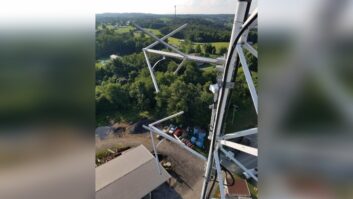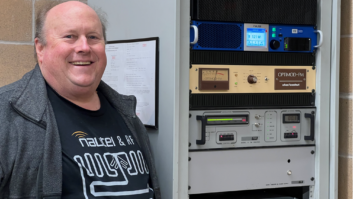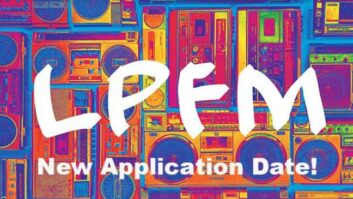LPFM/FM Translator Resolution in Sight?
Aug 1, 2011 1:00 AM, By Lee Petro
The June 2011 FCC Update discussed the FCC’s release of a public notice calling for comments relating to the possible impact of LPFM stations on full-service FM stations. That effort is part of the overall implementation of the Local Community Radio Act of 2010 (LCRA). On the heels of the public notice’s release, the Commission released the third further notice of proposed rulemaking in order to break the log-jam of long-pending FM translator applications, and to resolve LCRA’s requirement that the Commission take into consideration the local community’s needs when balancing the processing of LPFM and FM translator applications in the same area.
To that end, the Commission has proposed the creation of LPFM ceiling floors that would condition the processing of FM translator applications on the availability of spectrum remaining in local markets for LPFM use. In particular, in the top 150 radio markets, the Commission will require the reservation of spectrum to allow for the subsequent licensing of LPFM stations. If there is adequate spectrum for LPFM stations that remains after this reservation, only then will the Commission process the pending FM translator applications in that market. All other FM translators will be dismissed.
Under the Commission’s plan, sufficient spectrum in the top 20 markets must remain to permit the licensing of eight LPFM channels. Next, in markets 21-50, sufficient spectrum must be set aside to permit the licensing of seven LPFM channels. In markets 51-100, six LPFM channels must be protected, and in markets 101-150, spectrum must be set aside for five LPFM channels. The Commission will consider previously licensed LPFM stations in determining if the floor has been met, and will then proceed to process those FM translator applications in the top 150 markets.
The Commission took the first cut at showing how the process would work, and which of the top 150 markets would be open for processing of the pending FM translator applications. Of the top 40 Arbitron markets, only San Antonio (#31) and Orlando (#34) have sufficient LPFM channels available for the Commission to process the FM translator applications. In the next 10 Arbitron markets, only Raleigh-Durham, NC, Nashville, TN, Greensboro-Winston Salem, NC, Oklahoma City and Memphis, would be open for processing of the pending FM translator applications. The Commission is seeking comment on the use of the floor, and whether the use of Arbitron radio markets is the proper definition of the radio market for this purpose.
Next, the Commission is seeking comment of methods to prevent the trafficking of FM translator construction permits and licenses. The Commission noted that the top 15 filers in the 2003 window submitted 50 percent of the applications. The Commission also noted that several entities actively marketed construction permits acquired during the 2003 filing window, with one entity assigning half of its permits to other parties. As such, the Commission is seeking input on different approaches to meet this goal. One option it raises is to cap the number of applications one entity could prosecute in a particular market. Another option is to reinstate a cap on the number of applications, but raise it from the previously used maximum of 10, to 50 or 75 applications with the expectation that the applicant would focus on those markets in which they actually intend to operate.
Finally, the Commission is considering lifting one of the restrictions imposed upon the use of FM translators by AM stations. When the Commission adopted its rules permitting such use, it stated that no FM translator that was authorized after May 1, 2009, could be utilized for such purposes. However, the Commission noted that the rule change has been very successful and that AM stations have be able to take advantage of the nighttime service afforded by FM translators to provide local service to their communities. Therefore, in concert with the other changes necessary to implement LCRA, the Commission is considering lifting the May 1, 2009, restriction to permit greater use of FM translators.
Comments are due no later than Aug. 29, 2011, with reply comments due no later than Sept. 12, 2011.
Dateline
Aug. 15: All radio stations located in North Carolina and South Carolina run License Renewal Post-Filing Announcements, continuing on Sept. 1 and 15, and Oct. 1 and 15.
Aug. 15: All radio stations located in Florida, Puerto Rico and the Virgin Islands run License Renewal Pre-Filing Announcements, continuing on Sept. 1 and 15.
October 3: Noncommercial television stations in Iowa and Missouri file their Biennial Ownership Report (FCC Form 323-E).
October 3: Radio stations in Florida, Puerto Rico and Virgin Islands file License Renewal Application and EEO Program Report. Noncommercial radio stations also file their Biennial Ownership Report (FCC 323-E).
Petro is a member of Fletcher, Heald & Hildreth, PLC, Arlington, VA. Email: [email protected].
August 2011
Remote site control, a tour of Dial Global’s new Denver operation, Field Reports on the RDL EX-MCP1 and Behringer EPA 105 and more….












